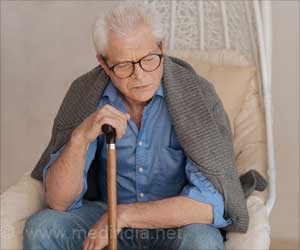Patients with the rapid eye movement sleep behaviour disorder lack dopamine and are at increased risk for developing Parkinson's disease.

‘Patients with RBD have an inflammation of the brain in the area where the dopamine-producing nerve cells are found.
’





The study shows that patients suffering from RBD have a risk of developing Parkinson's disease or dementia in the future, because they already suffer from a lack of dopamine in the brain. Parkinson's disease occurs precisely because the group of nerve cells in the brain that produce dopamine stop working. The RBD sleep disorder is characterised by disturbances in the part of sleep where dreams take place. Healthy people are relaxed and lie still during dream sleep, while people suffering from RBD live out their dreams so that while sleeping they can hit out, kick and shout.
"These patients have an inflammation of the brain in the area where the dopamine-producing nerve cells are found," says one of the researchers behind the study, Morten Gersel Stokholm from Aarhus University and the PET Centre at Aarhus University Hospital.
The findings have been published in the neurological journal The Lancet Neurology.
This is completely new knowledge, as researchers have not previously demonstrated that there is a form of inflammation of the brain in patients who are at risk of developing Parkinson's disease.
Advertisement
Parkinson's disease
Advertisement
Background for the results:
The study is a case-control study.
The people behind the project are Medical Doctor and PhD student Morten Gersel Stokholm and Associate Professor, MD, Nicola Pavese in collaboration with medical doctors from the Department of Neurology and the Sleep Clinic, Aarhus University Hospital and medical doctors from the University Hospital Clinic de Barcelona.
Source-Eurekalert















